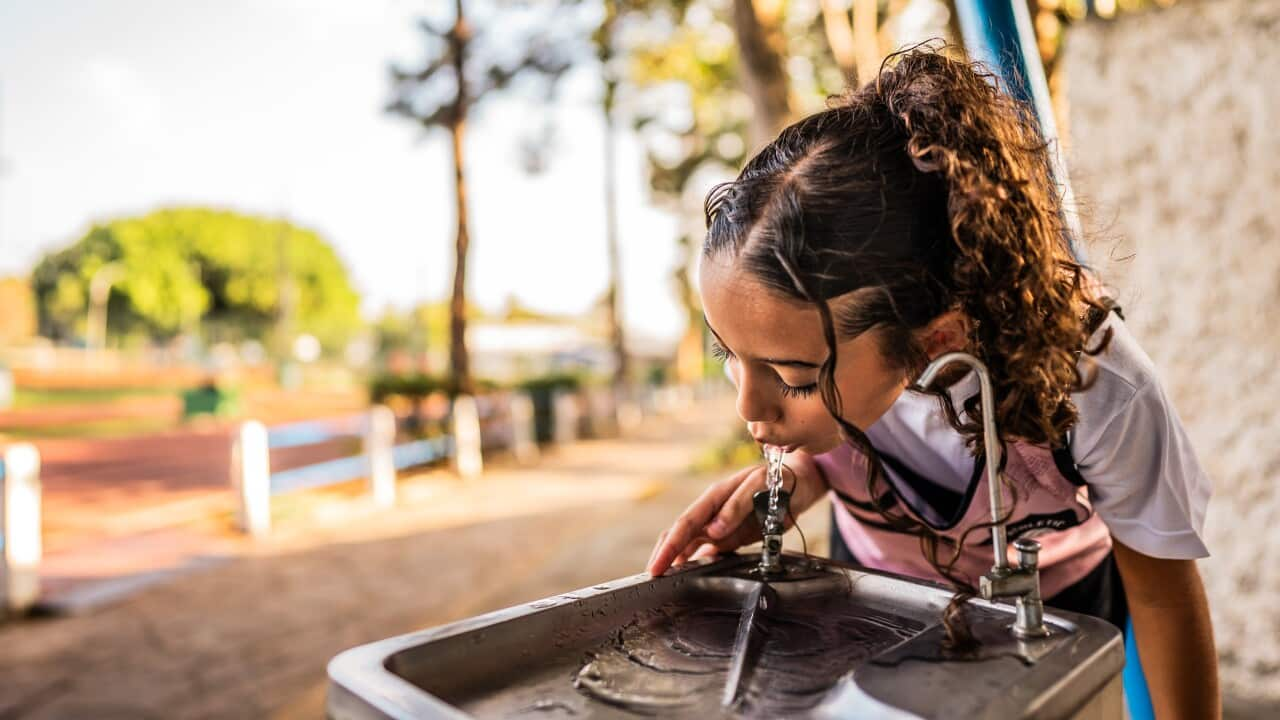The United States could experience several changes as : from deporting undocumented migrants to cutting climate regulations.
Even the water could be different under a Trump presidency.
This follows the appointment of Robert F. Kennedy Jr. to the country's health department, which will advise water systems to remove fluoride.
He called fluoride "industrial waste associated with arthritis, bone fractures, bone cancer, IQ loss, neurodevelopmental disorders, and thyroid disease", while the US Centers for Disease Control and Prevention said it was one of the ten "great public health achievements" of the last century.
What is water fluoridation, and why is it important?
Water fluoridation is the process of adding fluoride to public water supplies to prevent tooth decay and improve oral health.
It works by strengthening the tooth's enamel, its hard outer surface, making it more resistant to the acid produced by bacteria that cause tooth decay. Fluoride also reverses early tooth decay by replacing and preventing the loss of minerals in teeth.
According to Australia's National Health Medical Research Council (NHMRC), water fluoridation reduces tooth decay by 26 to 44 per cent in children and adolescents and by 27 per cent in adults.

According to experts, fluoride is an important mineral for maintaining good dental health. Credit: SBS
Is fluoride added to water in Australia?
Fluoride has been added to Australia's drinking water since the early 1950s, with coverage varying across states and territories.
In Australia, around 89 per cent of the population has access to fluoridated water, leaving 11 per cent without access, mostly in the Northern Territory and Queensland.
The most recent data on fluoridated water coverage in Australia is from 2017.
According to the data, Queensland and the Northern Territory have the lowest coverage, with 76 per cent and 78 per cent of their populations having access to fluoridated water, respectively.
In Queensland, local councils were given the option to opt out of mandatory water fluoridation in 2012.
Fifty-one out of 77 local government areas (LGAs) in the state do not have fluoridated water, meaning residents in nearly three-quarters of the LGAs lack access to this essential mineral through their water supply.

The ACT is the only part of Australia where 100 per cent of the population has access to fluoridated water. Credit: SBS
The debate in Queensland
In recent weeks, health professionals have renewed calls urging local councils to reverse their decisions and join the efforts to fluoridate water.
At the start of October, the Australian Medical Association Queensland called on several councils to implement community water fluoridation, highlighting the growing prevalence and severity of oral decay among children.
The use of fluoride is continuously challenged by misinformation opposing it.
The local community survey conducted by Cairns Regional Council in October showed a divided opinion on the issue — with 35 per cent strongly supporting and 31 per cent strongly opposing water fluoridation.
Is adding fluoride to water based on outdated science?
Loc Do, professor of dental public health at the University of Queensland, said research into the effectiveness of water fluoridation has been ongoing for over 80 years.
"Evidence still shows that even in the contemporary conditions, water fluoridation offers a strong effect in preventing caries, both in children and adults," he said.
"Our research in Australia has demonstrated repeatedly, and we have seen significant effects among those who have been exposed to fluoridated water compared with those who were not.
"After controlling for confounding factors like socioeconomic status and other fluoride sources, and dental service use — [it showed] water fluoridation is still relevant in our contemporary society."
Does fluoride cause cancer or lower IQ levels?
In 2017, the NHMRC conducted a comprehensive review of fluoridation and its health effects. The review concluded that there is sufficient reliable evidence to show that community water fluoridation in Australia is not linked to cancer, Down syndrome, cognitive dysfunction, or lowered intelligence.
Do said the accepted effect of fluoride is the increased risk of dental fluorosis, which results in white markings on the teeth.
"But our research also shows that the prevalence of dental fluorosis in Australia is under control," he said.
Do said in recent years, there have been a few publications on the alleged link between fluoride and children's IQ, but these studies failed to complete the peer review process. This includes the review by the National Toxicology Program (NTP) of the US Department of Health and Human Services.
"NTP had some early conclusions that fluoride was a toxin. But that report was also heavily criticised for the lack of proper analysis. In the most recent version of the report, that statement [that fluoride is] a neurotoxin has been taken out," he said.
How can fluoridated water prevent dental caries?
Do said a constant low dose of fluoride helps form fluorapatite crystals on the enamel surface of the tooth, which in turn protects it from acidic attacks.
He said this is supported by research that tracked young people as they aged, from adolescence into young adulthood.

Access to fluoridated water from childhood can prevent dental problems later in life, according to experts. Source: Getty / Jason Edwards
Aren't alternatives to fluoridated water enough?
Do said fluoride pills and drops have been available for a while, specifically to help people who have no exposure to fluoridated water.
"But the main problem is that they require a very high level of individual effort. Because individuals would need to be keeping the regimes correct, every day," he said.
"With water, people just need to drink the water."
Do said that as a result, people from lower socioeconomic backgrounds often miss out and experience worse health outcomes.
"Children are dependent on their parents, and if the parents are too busy working to buy food […] maybe that's the least important thing they would do. And those children would have a much higher risk of having dental caries."
Do said people from disadvantaged backgrounds are also less likely to afford fluoride treatments by a dentist.
"Not everyone can go to a dentist, right? And those who have a higher risk of having caries are those least likely to go see the dentist and get the fluoride application," he said.
"While they could drink fluoridated water at home and have that protection."
What about other countries?
A report by NHMRC states that more than 400 million people around the world benefit from fluoridated drinking water — approximately 370 million accessing community water fluoridation schemes and about 50 million drinking naturally occurring optimal levels of fluoridated water.
Countries with or planning to implement water fluoridation schemes include New Zealand, the United States, Canada, the United Kingdom, Ireland, Spain, Israel, Brazil, Chile, Argentina, Hong Kong, South Korea, Singapore and Malaysia.
Many countries also use salt fluoridation schemes.
In Australia, the first community water fluoridation program began in 1953 in Beaconsfield, Tasmania, followed by Yass, NSW in 1956. Most large Australian cities have fluoridated their water since the 1960s and 1970s.
European countries have different programs, ranging from fluoridated water to fluoridated salt, milk or other food-related alternatives.
Do said: "Quite a few countries use that. Also, many European countries have a much better dental care system than Australia."
"Some Scandinavian countries have (universal) dental cover for their whole population. That includes regular check-ups and varied fluoride application programs."













